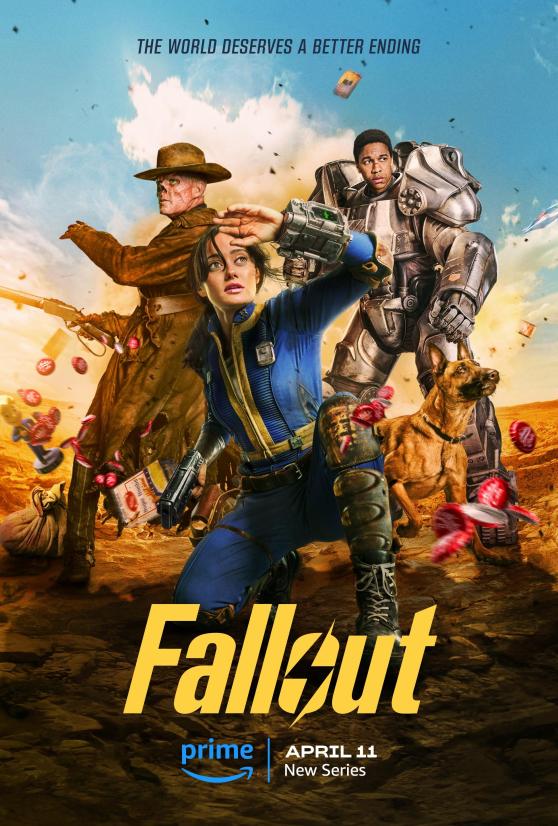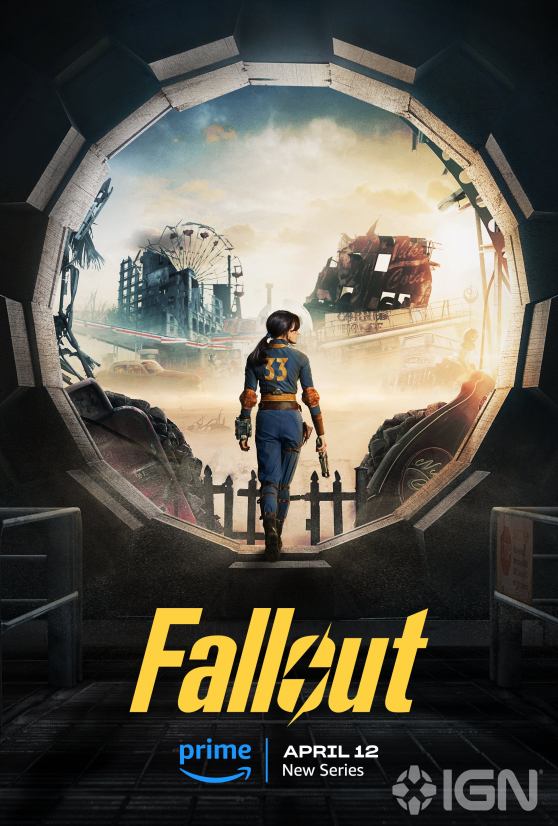
timespace coodinates: The series depicts the aftermath of the Great War of 2077, an apocalyptic nuclear exchange in an alternate history of Earth where advances in nuclear technology after WWII led to the emergence of a retrofuturistic society and a subsequent resource war. Many survivors took refuge in fallout bunkers known as Vaults. More than 200 years later in 2296, a young woman named Lucy leaves behind her home in Vault 33 to venture out into the dangerously unforgiving wasteland of a devastated Los Angeles to look for her father, who had been kidnapped. Along the way, she meets a Brotherhood of Steel squire and a ghoul bounty hunter, each has their own mysterious pasts and agendas to settle.

Fallout is an American post-apocalyptic drama television series created by Graham Wagner and Geneva Robertson-Dworet for Amazon Prime Video. Based on the role-playing video game franchise created by Tim Cain and Leonard Boyarsky the series stars Ella Purnell, Aaron Moten, Kyle MacLachlan, Moisés Arias, Xelia Mendes-Jones, and Walton Goggins. (wiki)






